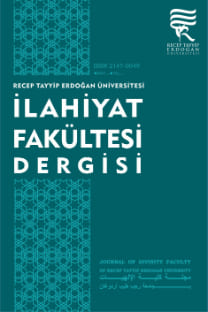Postmodern Tüketim Anlayışında Dindar Yaşam Biçimleri
Batının gündemini hâlâ meşgul eden postmodernite, etkisini hemen hemen bütün toplumsal alanlarda göstermektedir. Bu etki sadece Batıda değil İslam toplumları arasında da yaygınlaşmaktadır. Postmodernitenin muğlak ve tanımsız yapısı, kapitalizmle birleşince gücünü bir kat daha artırmıştır. Bu güç artışı, din merkezli bir yaşam biçimi oluşturma çabasındaki dindar Müslümanların sosyal yaşamlarına da nüfuz etmiştir. Postmodern yaklaşım, her şeyi yapıbozumuna uğratmanın yanında dinleri ve dindarların yaşam biçimlerini de günün moda (güncel) etkinlikleri vasıtasıyla bir merkezsizliğe (decentered) sürüklemektedir. Bu merkezsizlik; siyasi, ekonomik ve toplumsal değişimler vasıtasıyla dindar bireyleri de yavaş yavaş etkilemektedir. Özellikle dinin ortaya koyduğu kesin ve belirli prensipler, postmodern özneselliğin karşısında bireysel bir tercih haline gelmektedir. Bu değişimler hâlâ modernizm üzerinden okunmaya devam etmektedir. Oysa Türkiye, model aldığı medeniyetlerle birlikte çoktan postmodern durumları tecrübe eder olmuştur. Bu doğrultuda dindar kesimin değişen yaşam biçimlerini, bu değişimin nedenlerini ve sosyal yaşamları üzerindeki etkilerini postmodern tüketim perspektifinden inceleyerek anlayıp yorumlayabilmek araştırmamızın amacı olmuştur. Bu doğrultuda Rize İl merkezinde ikamet eden veya çalışan 30 dindar katılımcıyla mülakat yapılmıştır. Postmodernitenin yapısı nedeniyle araştırmamızda karma bir kuram tercih edilmiştir. Araştırma aynı zamanda betimsel, karşılaştırmalı ve jenetik bir yöntem özelliği gösterir. Araştırma sonucundaki bulgulara göre, dindar kesimin postmodern tüketim piyasasından gerek bireysel, gerekse sosyal açıdan etkilendiği ve dindar yaşam biçimlerinde genel bir değişimin gerçekleştiği görülmüştür.
Religious Lifestyles in the Concept of Postmodern Consumption
Postmodernity which is still occupying the agenda of The West, takes effect in almost every social sphere. This influence is becoming widespread in not only The West but also İslamic society. Ambiguous and undefined structure of postmodernity increased its power more after combining with capitalism. This power increase penetrates the social life of religious Muslims who are trying to constitute a faith-based life style. Postmodern approaches carry religions and life style of religious people to decentralization through fashion events of the day besides of causing a deconstruction on everything. This decentralization affects religious people gradually through political, economic and social changes. Especially certain and specific principles revealed by the religion become like an individual choice against the subjectivity of postmodernity. These changes are still perceived as modernism. However, Turkey has already experienced postmodern cases together with the civilizations taken as a model by Turkey. The aim of this research is investigating, understanding and interpreting the changing life styles of religious people, reason of these changes and the effects of these changes on their social life from a perspective of postmodern consumption. In this regard, 30 religious participants who live or work in city center of Rize have been interviewed. In this research work, a hybrid theory was preferred due to the structure of postmodernity. This research also shows a descriptive, comparative and genetic method feature at the same time. According to the evidences at the end, religious groups are affected by postmodern consumer market both individually and socially and general changes in their religious life style are observed.
